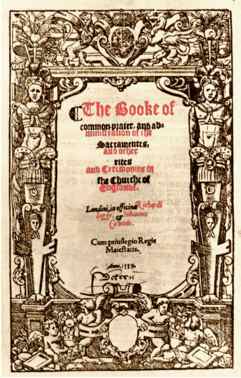
Westminster Confession of Faith
Chapter 20: Of Christian Liberty, and Liberty of Conscience
4: And because the powers which God has ordained, and the liberty which Christ has purchased are not intended by God to destroy, but mutually to uphold and preserve one another, they who, upon pretence of Christian liberty, shall oppose any lawful power, or the lawful exercise of it, whether it be civil or ecclesiastical, resist the ordinance of God.[401] And, for their publishing of such opinions, or maintaining of such practices, as are contrary to the light of nature, or to the known principles of Christianity (whether concerning faith, worship, or conversation), or to the power of godliness; or, such erroneous opinions or practices, as either in their own nature, or in the manner of publishing or maintaining them, are destructive to the external peace and order which Christ has established in the Church,[402] they may lawfully be called to account, and proceeded against, by the censures of the Church.[403]
 Did the Westminster Assembly violates it's own guidance when they tossed The Book of Common Prayer out the window (a form of thoroughly biblical form of worship established under legitimate ecclesiastical and civil authority)? Where was the "Christian liberty?" Was it done to build up the people?
Did the Westminster Assembly violates it's own guidance when they tossed The Book of Common Prayer out the window (a form of thoroughly biblical form of worship established under legitimate ecclesiastical and civil authority)? Where was the "Christian liberty?" Was it done to build up the people?





5 comments:
Come on, you know the answer to that: they did not find the Book a thoroughly biblical form of worship. All the Puritans in the Assembly found it too Catholic.
Ugh. Subscribing.
Too Catholic? Or too Roman? There's a difference. I'm a Catholic - and a Latin Rite one as well, but I'm *not* Roman.
The two fronts were on the episcopate and baptismal regeneration (if memory serves). The Prayer Book preserves reformation-era Calvinist eucharistic thought in a way that the WCF folks discarded.
Not to mention the fact (as I mentioned in a previous post) that Parliament by this time had aligned itself with the Scots and desired to come up with a Confession and Book of Worship that would put them more in line with the Church of Scotland. They were following the guidelines given to them by the same civil body that called the Assembly.
Mmm...love me some foreign meddlin' in my government and church.
Wait...actually, I do!
Post a Comment